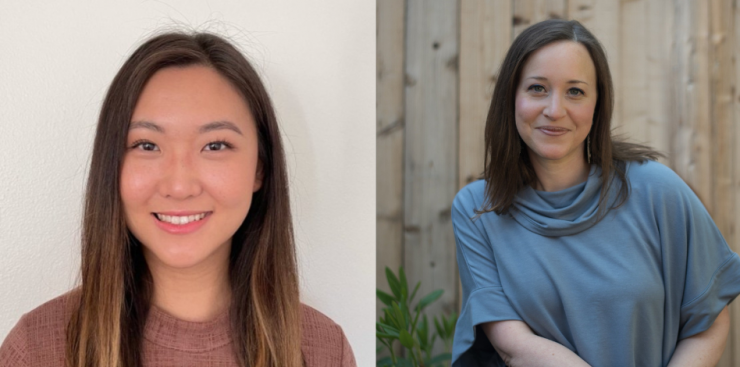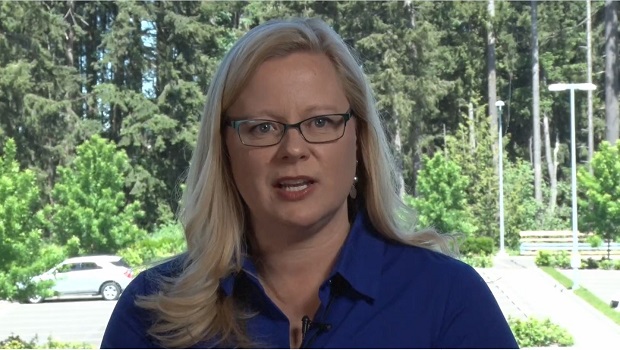Integrating social health into primary care is successful on a small scale. So, what’s next?

Sophia Mun and Ariel Singer share success stories from Universal Social Health Screening Pilot Project
Using patient-centered approaches, the Universal Social Health Screening Project partnered with primary care teams and patients to design and implement universal screening for social health. The project uses an approach called the Social Health Questionnaire (SHQ) at 2 Kaiser Permanente Washington primary care clinics to help care teams better understand members’ social risks and to connect members who have social needs to the clinic’s Community Resource Specialists (CRSs). CRSs help members utilize community-based resources that meet their unique needs, such as housing, transportation, caregiving support, and healthy food access.

What has integrating universal social needs screening brought to the launch clinics?
Sophia Mun (SM): The integration of universal social health screening has brought a greater awareness to both care teams and patients about the importance of caring for patients’ social health. Just like how we ask patients about their physical and mental health, we are now systematically assessing whether patients are experiencing any challenging life circumstances and getting them connected to resources in their community. We are excited to integrate these screening efforts into more clinics in the future.
Ariel Singer (AS): Launching universal screening has helped us identify many patients with social needs who may have otherwise slipped through the cracks because they did not know who to ask for help, or that help was available at all.
You recently interviewed members who screened positive for social needs and clinic care team members at the clinics. What are they saying about social health integration and the CRS role?
AS: Many care team members expressed how glad they are that Kaiser Permanente Washington is asking members about social health because they recognize how critical social circumstances are to health outcomes, and that some people will not share what’s going on for them unless you ask. Even though it is adding to their workload, they are grateful that screening is happening and that there is a CRS on the team to support members when issues arise.
SM: Through the interviews, we’ve seen the impact universal social health screening has had on patients from the launch clinics. Raising awareness about what social needs are and how we are addressing them is important. The more we can communicate with providers and members about this work, the better. These stories help destigmatize the larger concept of social health and raise awareness about what the CRSs are capable of, and how they can assist patients with challenges outside of their physical health.
Out of the success stories shared during these interviews, can you share one that stands out to you?
SM: An older patient with diabetes had been losing weight but struggling to access healthy food. She didn’t know how to receive assistance and was hesitant to ask for help. Through the Social Health Questionnaire, she was connected to her clinic’s CRS, who helped her get access to state food benefits and to a farmers market program and other incentives for healthy food purchases.
This is just one story that exemplifies the great work that the CRSs do. Not only are they extremely knowledgeable about local and statewide benefits and resources, but they also provide kind, compassionate, and judgement-free care that makes members feel safe to share their concerns.
AS: A patient with breast cancer wasn’t going to go to treatment because she didn’t have access to reliable transportation. The provider referred her to the clinic’s CRS, who made sure that the member had the resources she needed to get to and engage in life-saving treatment.
It sounds like you learned a lot from these interviews. What’s next for social health integration?
SM: We need to communicate more effectively about social health to both KPWA members and the care delivery workforce. The members who initially partnered with us to co-design our approach and the members we’ve talked to more recently through our interviews have expressed that not enough people know that KP Washington is offering support to address social health in addition to physical health. If members and care delivery staff know about the amazing work CRSs do and the resources they provide, and we have data to back that up, hopefully we can get the resources we need to continue moving forward.
AS: I agree with Sophia that communication and education are important next steps. We need to communicate with both the workforce and members to normalize social health integration. By providing more clarity on how KPWA supports social health, workforce members will know what to expect when they refer somebody to a CRS and members will hopefully experience less stigma in acknowledging that they need resources. Through the interviews I’ve conducted, it seems that as we keep going with universal screening in the launch clinics, the more comfortable the staff and the members are with talking about social needs in a health care setting, and the more people know that KPWA can be there for them in this way. I’d like to see that positive trend keep going.
Why is social health integration important to you?
AS: I regard social health integration as necessary but not sufficient in our country. Our social service systems are complex, fragmented, and underfunded, which makes it hard for people to get the support they need. The larger socioeconomic issues that cause people to have health-related social needs all stem from public policy.
SM: I completely agree with Ariel. Social needs related to food or housing insecurity, or unreliable transportation exacerbate health disparities. If we can capture the data to show these needs are prevalent in primary care, then hopefully we can expand these efforts in other settings like urgent care or specialty clinics. The work starts here but there's a lot more to do.
Related news



